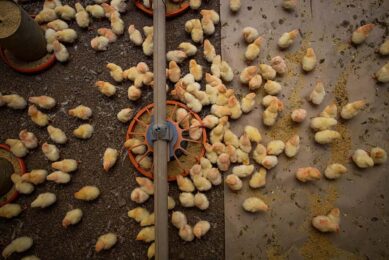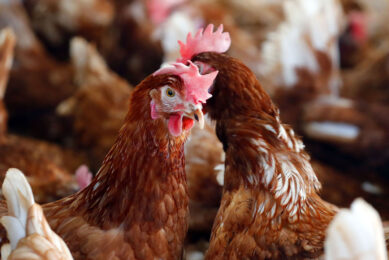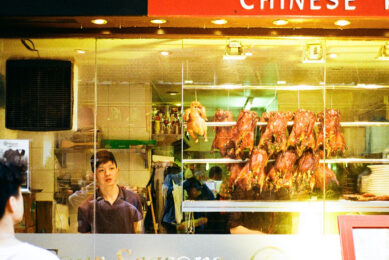Exogenous lysozyme can decrease C. perfringens in broilers
A research team at the China Agricultural University in Beijing investigated the effect of exogenous lysozyme on Clostridium perfringens colonization and intestinal barrier function in broilers.
Necrotic enteritis is a worldwide poultry disease caused by the overgrowth of Clostridium perfringens in the small intestine.
An experiment with a 2×2 factorial design (supplementation with or without 40 mg lysozyme/kg diet for chickens challenged with or without C. perfringens) was conducted to investigate the inhibitory efficacy of exogenous lysozyme against intestinal colonization by C. perfringens in chickens subject to oral inoculation of C. perfringens type A on days 17-20.
Results
The C. perfringens challenge resulted in significant increase of C. perfringens, Escherichia coli and Lactobacillus populations in the ileum, bacteria translocation to the spleen, the intestinal lesion scores. There was significantly lower intestinal lysozyme activity in the duodenum and jejunum and weight gain during days 14-28 of the experiment.
The addition of exogenous lysozyme significantly reduced the concentration of C. perfringens in the ileum and the intestinal lesion scores, inhibited the overgrowth of E. coli and Lactobacillus in the ileum and intestinal bacteria translocation to the spleen, and improved intestinal lysozyme activity in the duodenum and the feed conversion ratio of chickens.
Conclusion
These findings suggest that exogenous lysozyme could decrease C. perfringens colonization and improve intestinal barrier function and growth performance of chickens.
This study was published in Avian Pathology (Febr, 2010)
Join 31,000+ subscribers
Subscribe to our newsletter to stay updated about all the need-to-know content in the poultry sector, three times a week. Beheer
Beheer








 WP Admin
WP Admin  Bewerk bericht
Bewerk bericht